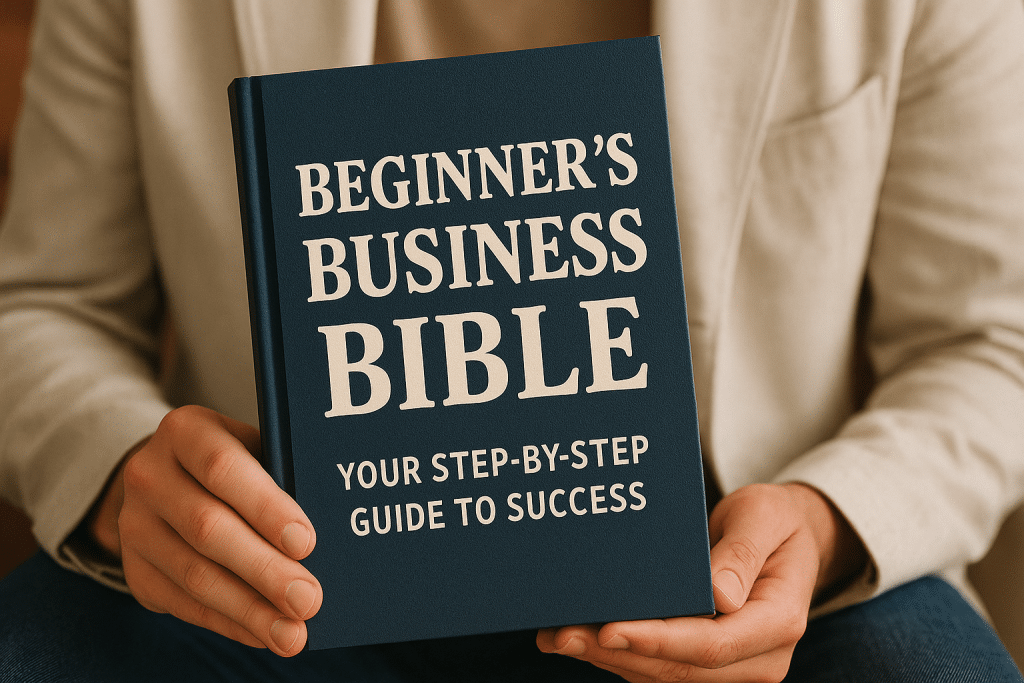How to Trust Your Gut in Business Decisions: A Practical Guide
Struggling with what the best business to start is? Or if you already have a small business, have you ever been stuck at a crossroads in your business and felt that nagging feeling, that something's not right sensation, even when all the data points to a certain direction? That's your gut – your intuition – whispering (or sometimes shouting!) in your ear. In the fast-paced, analytical world of business, it can be tempting to dismiss these feelings as irrational or unfounded. But what if trusting your gut could be a powerful asset, guiding you toward better decisions and greater success? Learning how to harness this inner wisdom is a skill that can set you apart, helping you navigate complex situations with confidence and clarity.
The Science Behind the Gut Feeling
Let's be clear: gut feeling isn't some mystical mumbo jumbo. It's rooted in science. The enteric nervous system, often called the second brain, is a network of neurons lining your gastrointestinal tract. It communicates extensively with your actual brain, influencing everything from mood to decision-making. This gut-brain axis is constantly processing information, often subconsciously.
Think of it like this: you've spent years accumulating knowledge and experiences in your industry. Your brain has stored countless data points, patterns, and insights. Your intuition is your brain's way of quickly accessing this vast database and flagging potential problems or opportunities that your conscious mind hasn't yet fully processed. It's a shortcut, a rapid assessment based on a lifetime of learning. That unsettling feeling you get when a deal seems too good to be true? That’s likely your gut flagging inconsistencies based on past experiences – experiences that your conscious mind hasn't explicitly recalled.
Why We Often Ignore Our Intuition in Business
Despite the potential benefits, many of us struggle to trust our gut in business. Here's why:
- Overemphasis on data: We live in an age of data-driven decision-making, and while data is crucial, it's not the whole story. Relying solely on spreadsheets and metrics can blind you to important qualitative factors and subtle nuances that your intuition can pick up on.
- Fear of appearing irrational: In a professional setting, we often feel pressure to justify our decisions with logic and reason. Trusting your gut can feel like a risky move, especially if you can't articulate a concrete reason for your feelings.
- Past experiences: If you've ignored your intuition in the past and it turned out badly, you may be hesitant to trust it again.
- Lack of self-awareness: Some people are simply less attuned to their internal feelings and sensations. Developing self-awareness is key to recognizing and interpreting your gut feelings.
How to Cultivate and Strengthen Your Intuition
So, how do you go about developing and trusting your gut in business? It’s a skill that sharpens with practice and conscious effort. Here are some actionable strategies:
1. Practice Mindfulness and Self-Awareness
The first step is to become more attuned to your inner landscape. Mindfulness practices like meditation can help you quiet the noise of your mind and connect with your body's signals. Pay attention to how you feel physically and emotionally in different situations. Do certain types of meetings make you feel anxious? Does a specific client give you a bad vibe? By noticing these subtle cues, you can start to decipher the language of your intuition.
2. Create Space for Reflection
In the hustle and bustle of daily business, it's easy to get caught up in the firehose of information and lose touch with your inner voice. Make time for reflection, whether it's a quiet walk in nature, journaling, or simply sitting in silence for a few minutes each day. This allows you to process your experiences, identify patterns, and connect with your intuition.
3. Pay Attention to Physical Sensations
Your gut often communicates through physical sensations. A knot in your stomach, a tightness in your chest, a feeling of unease – these are all potential signals from your intuition. Learn to recognize these sensations and associate them with specific situations or decisions. For example, if you consistently feel a tightness in your chest when discussing a particular partnership, that's a red flag worth investigating.
4. Start Small and Test Your Intuition
Don't immediately make major business decisions based solely on your gut feeling. Start small. In less critical situations, make a decision based on your intuition and then observe the outcome. Did your gut steer you in the right direction? This will build your confidence and help you refine your intuitive skills.
5. Don't Confuse Intuition with Impulse
It's important to distinguish between intuition and impulse. Intuition is a deep, knowing feeling based on accumulated knowledge and experience. Impulse is a sudden urge or desire that may be driven by emotions or external factors. Intuition feels calm and grounded, while impulse feels frantic and reactive. Take a moment to pause and reflect before acting on any feeling, to ensure that it is truly intuition guiding you.
6. Gather Information, Then Listen to Your Gut
Intuition isn't a replacement for data and analysis. It's a complement. Gather as much information as you can about a situation, then step back and listen to your gut. Does the data align with your intuition? If not, investigate further. Sometimes your intuition will confirm what the data is telling you, and other times it will point out hidden risks or opportunities that the data doesn't reveal.
7. Embrace Failure as a Learning Opportunity
Not every gut feeling will be correct. Sometimes you'll make a decision based on your intuition and it will backfire. Don't beat yourself up. Treat it as a learning opportunity. Analyze what went wrong and identify any patterns or biases that may have influenced your intuition. This will help you refine your skills and make better decisions in the future.
Examples of Intuition in Business
Here are a few real-world scenarios where trusting your gut can make a significant difference:
- Choosing a good business to start: If you are weighing up two or three options, trusting your gut can help steer you in the right direction for you, regardless of what may look best on paper.
- Hiring Decisions: A candidate looks great on paper, but something about their demeanor during the interview feels off. Your gut tells you they're not the right fit, despite their qualifications.
- Negotiations: You're in the middle of a negotiation, and the other party makes an offer that seems reasonable. But your gut tells you they're holding something back. You trust your intuition and push for more information, uncovering a hidden clause that would have been detrimental to your business.
- Product Development: Market research suggests a certain product feature will be a hit. But your gut tells you it's not aligned with your brand values or target audience. You listen to your intuition and pivot to a different approach, ultimately creating a more successful product.
- Partnerships: A potential partner has impressive credentials and a solid track record, but you feel uneasy about their long-term vision. Following your gut saves you from entering into a partnership that ultimately clashes with your company’s direction.
The Importance of Balance: Data and Intuition Working Together
Ultimately, the key to success in business lies in finding the right balance between data analysis and intuition. Data provides the facts and figures you need to make informed decisions. Intuition provides the context, the nuance, and the human factor that data often misses. By combining these two powerful tools, you can navigate the complexities of the business world with greater confidence and achieve better outcomes.
Final Thoughts: Empowering Your Business with Intuition
Learning to trust your gut in business is about empowering yourself with a deeper understanding of your own capabilities and accumulated wisdom. It’s about recognizing your intuition not as a mystical force, but as a valuable tool honed by experience. By cultivating self-awareness, practicing mindfulness, and paying attention to your inner signals, you can unlock a powerful source of insight and make decisions that are both data-driven and deeply aligned with your values and goals. So, the next time you feel that gut feeling, don't dismiss it. Listen to it, explore it, and let it guide you toward greater success.





